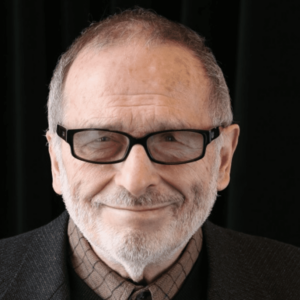In his book on the War of 1812 the once-popular historian Pierre Berton noted that the 75,000 or so only recently arrived English-speaking settlers then living in what is now Ontario were “most of them Americans.”
Whatever else, they “certainly did not call themselves Canadian. (That word was reserved for their French-speaking neighbours … )”
More than two centuries later some parallel cultural hangover may help explain why it is only the Quebec National Assembly that has so far contested both a Canadian provincial legislature’s constitutional oath to the offshore British monarch, and the federal prime minister’s appointment of provincial lieutenant governors, theoretically representing the Charles III who now lives in Buckingham Palace.
On some similar channel it is a francophone Liberal MP from Acadian New Brunswick, René Arseneault, who has now tabled a private members’ bill making the constitutional oath to the offshore British monarch optional for federal MPs from coast to coast to coast in Canada (following the example of the Quebec National Assembly).
Mr. Arseneault’s federal bill has not surprisingly attracted the attention of Canadian monarchists. They see it as part of a wider plot to turn Canada into “a republic by stealth.”
According to CBC News, to take just one case in point, John Fraser, president of the Institute for the Study of the Crown in Canada “and a noted monarchist” has recently attacked René Arseneault’s bill as “a stupid idea,” rooted in a mindless new Canadian republicanism.
Mr. Fraser went on : “He said republicans are ‘foolishly’ trying to dismantle Canada’s Westminster system of government, a parliamentary structure that has served the country well for more than 150 years.”
Yet someone more familiar with current Canadian republican debate will appreciate that serious republicans are not at all “trying to dismantle Canada’s Westminster system of government.” They are trying to take it to its logical conclusion in Canada.
In the old world this system goes back at least to the 1688-89 Glorious Revolution in England. Its essential feature is not the “Monarchy” but “Parliament.”
As the Rump of the Long Parliament had declared on January 4, 1649 : “the people are, under God, the original of all just power,” and “the Commons of England in Parliament assembled, being chosen by and representing the people, have the supreme power in this nation.”
This deep background underlines the extent to which our northern North American Westminster system itself goes back to the 1848 “year of revolution” in Europe. This marked the birth of “responsible government” in Canada (including Nova Scotia) — or what we now call parliamentary democracy — in the wake of the 1837–38 Canadian rebellions.
Canadian parliamentary democracy finally adopted its own flag in 1965 and its own charter of rights in 1982. Serious Canadian republicans just want to turn the current office of governor general into a more democratically selected independent Canadian head of state.
(And, just for example, this has already been done in Canada’s fellow former British dominions of Ireland and India — and in such similar parliamentary democratic republics outside the old anglophone global empire as today’s Germany and Iceland.)
All this finally raises the noted monarchist John Fraser’s at first impressive claims about “Canada’s longstanding link to the Crown, an institution above the whims of partisan politics.”
For Canadians, Mr. Fraser goes on, this link is made real through the “Governor General, the King’s representative in Canada,” who is “a check on political power — ensuring the prime minister commands the confidence of the House of Commons.”
Yet the inescapable and very big practical trouble here is that, thanks to William Lyon Mackenzie King long ago, the Governor General of Canada is nowadays effectively appointed by the Prime Minister of Canada.
In this real world of politics Mr. Fraser’s high-minded philosophy must grapple with such questions as : How can someone appointed by a partisan politician be seriously said to be above the whims of partisan politics? How can someone appointed by a prime minister act as any realistic check on a prime minister’s abuse of power?
Whatever happens to René Arseneault’s MP oath bill in 2024, it will (as John Fraser sensibly enough fears) finally aid and abet the Canadian future at the bottom of the 2023 Abacus poll which found “2 in 3 Canadians would vote to eliminate the monarchy in Canada.”
And when this does ultimately happen the “free and democratic society” in Canada (as in the Constitution Act, 1982) will still have the same Westminster system of parliamentary democracy it first embraced more than 175 years ago.







